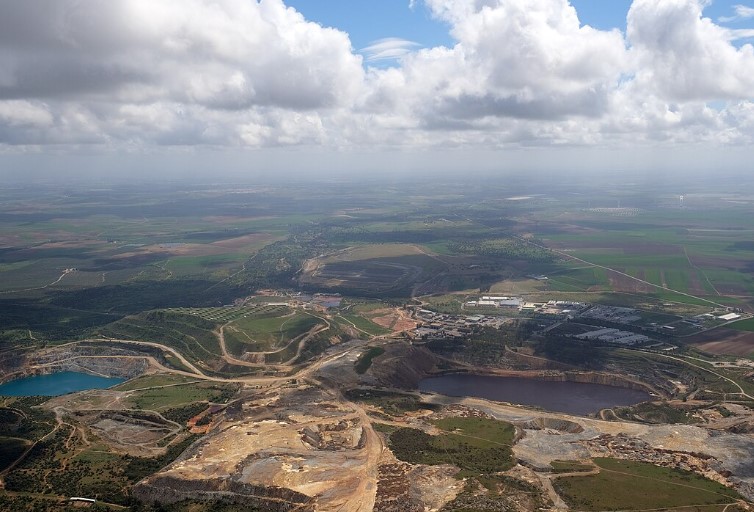
After 24 years of closure and a history marked by controversy, the Aznalcóllar mine in Seville, Andalusia, is resuming operations. This decision, announced by the Andalusian government led by Minister Jorge Paradela, marks a turning point for the region, but also raises questions regarding its ecological impact. The project, led by Grupo México and Minorbis, aims to exploit the polymetallic sulphide deposits (zinc, silver, and lead) of the site.
A New Beginning with High Expectations
The resumption of mining operations in Aznalcóllar is linked to significant investments of 450 million euros. The production of zinc, lead, copper, and silver is expected to start by 2028 and create up to 2,000 direct and indirect jobs over a period of two decades until 2045. Minister Paradela emphasized the complexity of the project, describing it as “perhaps the most complex project we have handled in the Junta de Andalucía.” The processing plant is designed for a capacity of 2.7 million tons of ore per year, with an estimated production of 170,000 tons of zinc concentrate, 50,000 tons of lead, and 13,000 tons of copper.
The Dark Past and the Bureaucratic Labyrinth
The history of Aznalcóllar is inextricably linked to the 1998 environmental disaster, when the mine’s tailings pond broke, spilling tons of toxic sludge into the Guadiamar River. This event led to the definitive closure of the mine in 2001 and shaped awareness of the environmental risks of mining in Spain. Although the Andalusian Parliament unanimously voted for a reopening in 2013, the path has been rocky. Administrative delays, environmental controversies, and an ongoing lawsuit regarding alleged irregularities in the awarding of the project to Minera Los Frailes testify to the challenges. Currently, 16 officials from the Junta de Andalucía are indicted.
Environmental Protection versus Economic Opportunities
The reopening of the mine is not without its critics. Ecologistas en Acción has filed an appeal against the unified environmental authorization, warning of the potential impacts on the fragile ecosystem of the Guadalquivir River. In particular, the discharge of treated water into the Guadalquivir estuary, even if the company promises near-potable quality and minimal volume, is a thorn in the side of environmental organizations. Scientists from the University of Seville have already warned of the accumulation of heavy metals in fish such as the Albures.
The mayor of Aznalcóllar, Juan José Fernández, a former miner, sees the project as an “opportunity” and a “milestone” for a sustainable mining model in Europe. He emphasizes the technological advancement and the underground, controlled exploitation, which is supposed to be more environmentally friendly. However, the debate between economic benefit and environmental protection remains virulent and is likely to continue in court.



